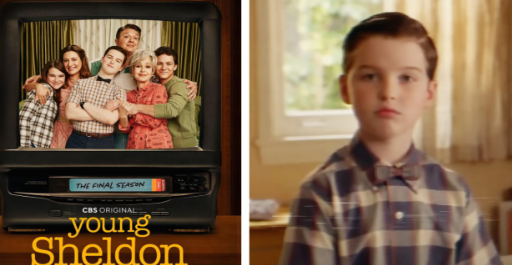
The beloved prequel to “The Big Bang Theory,” Young Sheldon, captivated audiences with its portrayal of a young Sheldon Cooper navigating life as a child prodigy in East Texas. Fans were thrilled by the show’s charming depiction of Sheldon’s formative years and the dynamics within the Cooper family. However, to their dismay, the show did not continue beyond Season 7. So, what led to the show’s abrupt end, and why didn’t Young Sheldon continue for Season 8? Here’s a look into the factors behind the decision.
1. Creative and Narrative Fatigue
One of the primary reasons for the show’s cancellation was creative fatigue. Over seven seasons, Young Sheldon explored a wide range of storylines, from Sheldon’s academic achievements and social struggles to his family dynamics and personal growth. By Season 7, the show’s writers and producers faced significant challenges in keeping the narrative fresh and engaging. As the character grew older and more complex, it became increasingly difficult to balance his development with the light-hearted tone that initially defined the series.
2. Ratings and Viewership Decline
Like many long-running series, Young Sheldon experienced fluctuations in viewership. While the show initially garnered strong ratings, sustaining high viewership numbers proved challenging over time. Season 7 saw a decline in ratings, which made the decision to renew the show for another season less financially viable for the network. Networks often evaluate the profitability of continuing a show based on its ability to attract and retain viewers, and a drop in ratings can significantly impact that decision.
3. Actor Contracts and Scheduling Conflicts
Another factor contributing to the end of Young Sheldon was related to the cast. As the young actors, particularly Iain Armitage, grew older, their availability and contract negotiations became more complex. Armitage, who portrayed Sheldon, and other key cast members had their schedules and commitments to consider. Balancing these with the demands of a television show became increasingly challenging, and the possibility of renegotiating contracts or accommodating new schedules may have influenced the decision to conclude the series.
4. Network Strategy and Programming Changes
Networks frequently reassess their programming strategies to align with changing audience preferences and business goals. CBS, the network behind Young Sheldon, had to consider its broader lineup and strategic direction. Shifts in viewer interests, the emergence of new shows, and the need to refresh its programming slate may have led to the decision to wrap up Young Sheldon and focus on new projects.
5. Story Arc Resolution
In many ways, Season 7 provided a satisfying resolution to several key story arcs. Sheldon’s growth as a character, his relationship with his family, and his academic journey were given significant closure. The series had reached a point where continuing might have risked diminishing the impact of the story it set out to tell. By concluding the show, the creators allowed it to end on a high note, preserving its legacy and ensuring that the character’s story remained memorable and impactful.
6. The Legacy of Young Sheldon
Despite its cancellation, Young Sheldon left a lasting impression on its audience. The series successfully expanded the universe of The Big Bang Theory and offered a heartwarming exploration of Sheldon Cooper’s early years. The show’s ability to blend humor with genuine emotional moments created a unique viewing experience that resonated with many fans.
In conclusion, the decision not to continue Young Sheldon for Season 8 was influenced by a combination of factors, including creative challenges, declining ratings, logistical issues with the cast, and network programming strategies. While the end of the series marks a bittersweet farewell, the show’s impact and charm continue to be celebrated by its dedicated fanbase.